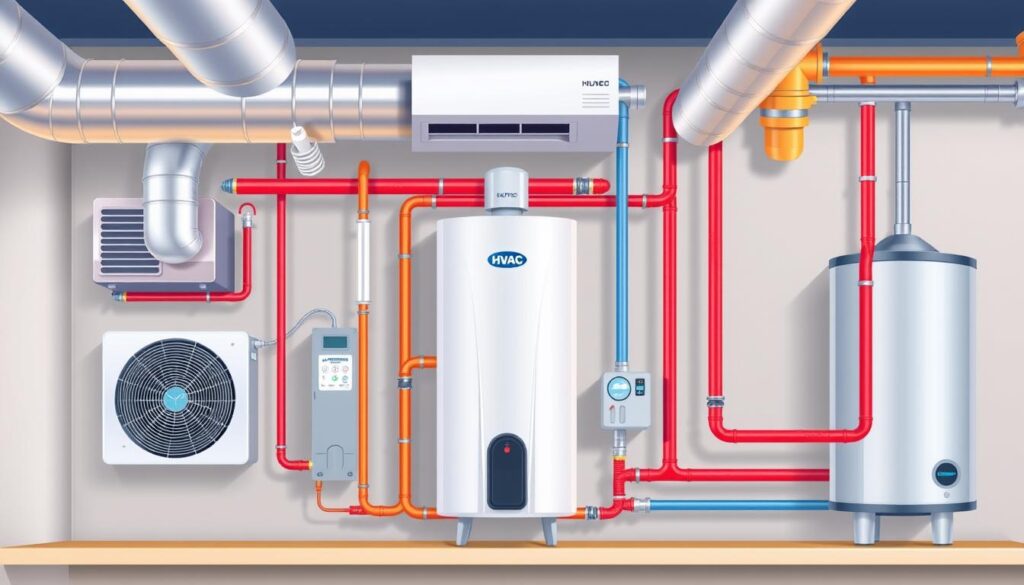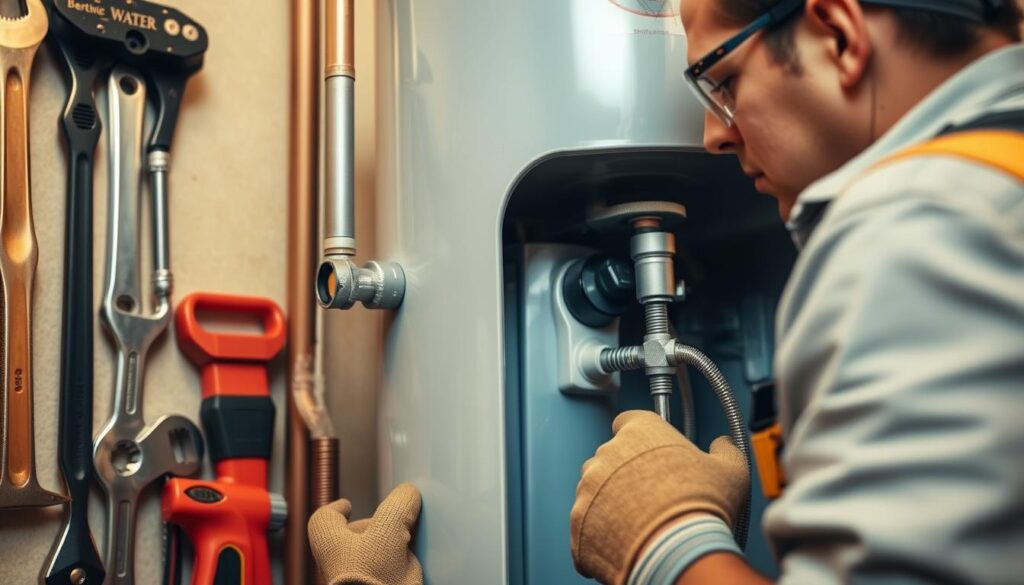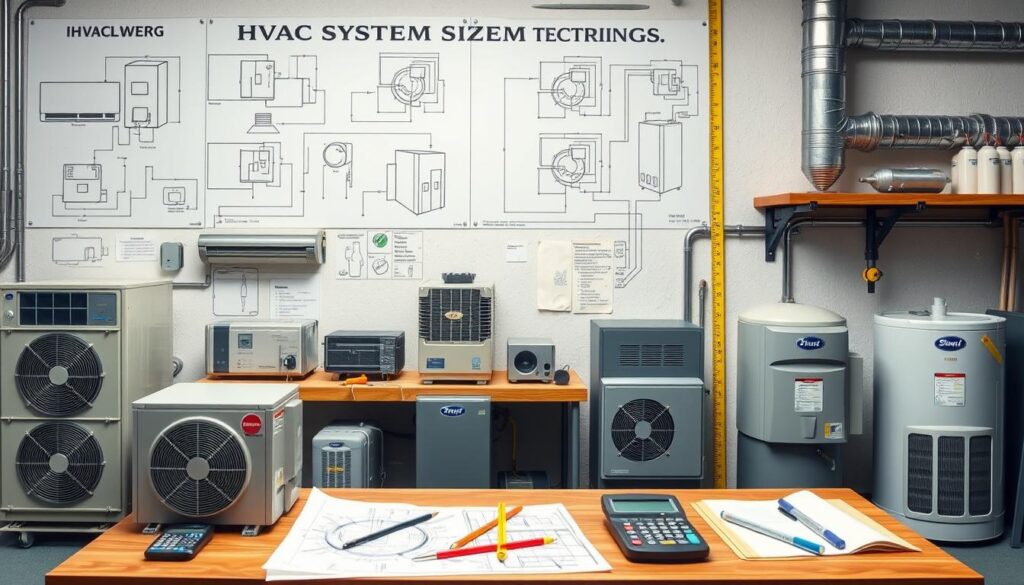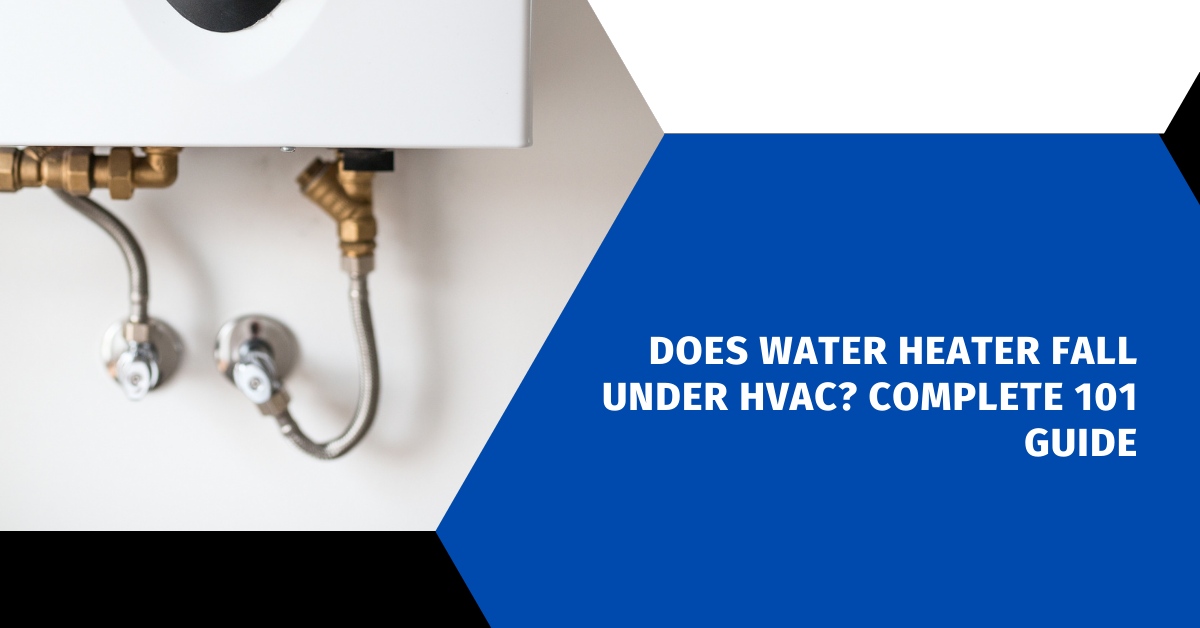Does Water Heater Fall Under HVAC? Our homes are getting smarter, making it harder to tell systems apart. You might wonder: does a water heater belong with HVAC (Heating, Ventilation, and Air Conditioning)? This guide will help you understand the connection between HVAC and water heaters. We’ll give you the info you need to choose the best for your home.
“A house is just a place to keep your stuff while you go out and get more stuff.” – George Carlin

Key Takeaways
- HVAC systems usually don’t include water heaters, which are part of the plumbing.
- Today’s HVAC systems might have hybrid/heat pump water heaters or hot water boilers. They can give you both hot water and heat.
- It’s key to install and maintain these systems right for energy savings and safety.
- When picking a system, think about your climate, home size, and budget.
- Systems that combine HVAC and water heating can save energy, cut costs, and help the environment.
Table of Contents
Understanding HVAC Systems and Their Components
HVAC (Heating, Ventilation, and Air Conditioning) systems are complex networks. They keep indoor air quality and temperature comfortable. These systems are key to a healthy and energy-efficient space.
The main parts of an HVAC system are:
- Heating units: Furnaces, boilers, and heat pumps that generate warm air.
- Cooling units: Air conditioners and heat pumps that cool and dehumidify.
- Ventilation systems: Fans, ductwork, and vents that move and control air.
- Control systems: Thermostats, sensors, and computer controls that manage the system.
These parts work together to make a comfortable and healthy space. For instance, the heating unit warms the air. The cooling unit removes excess heat and humidity. The ventilation system spreads the conditioned air around.
The control system makes sure the system works well. It keeps the temperature and air quality right.
| HVAC Component | Key Metrics | Purpose |
|---|---|---|
| Furnace | AFUE rating: 97% efficient | Heats the air and distributes it through the ductwork. |
| Heat Pump | HSPF2 rating: 10.5 for heating efficiency | Provides both heating and cooling by transferring heat in and out of the building. |
| Air Conditioner | SEER2 rating: 18 for cooling efficiency | Removes heat and humidity from the air, cooling the indoor environment. |
| Thermostat | Digital, programmable, and smart capabilities | Controls the HVAC system’s operation and maintains the desired temperature. |
Knowing how each HVAC part works is important. It helps with the right installation, upkeep, and improvement of your heating, ventilation, and air conditioning system.
“A well-designed and maintained HVAC system can significantly improve indoor air quality, energy efficiency, and overall comfort in your home or workplace.”
Does Water Heater Fall Under HVAC?
Traditionally, HVAC systems didn’t include water heaters. These were seen as part of the plumbing system. But, with new integration solutions, the line between HVAC and water heating has blurred.
Traditional HVAC Systems
HVAC companies handle cooling and heating systems in homes. Water heaters, focused on water temperature, were always part of plumbing. This made water heaters outside HVAC services.
Modern Integration Solutions
Hybrid or heat pump water heaters have changed this. They use electricity like HVAC systems, making them more efficient. Hot water boilers, which provide both hot water and heating, also fit into HVAC.
System Boundaries and Definitions
The lines between HVAC and water heating are now less clear. Some HVAC companies offer water heater services, while others don’t. This leaves homeowners to choose between HVAC or plumbing services.
Who does what can depend on where you live and local rules. In some places, tasks are split based on gas piping, venting, and water connections.
Types of Water Heaters in Modern HVAC Integration
Modern HVAC systems now include water heaters. This change offers better efficiency and saves space. It’s a big improvement over old separate systems.
The hybrid/heat pump water heater is a top choice. It uses electricity to pull heat from the air, like HVAC systems do. This makes it very energy-efficient and cost-effective for many homes.
Hot water boilers are another great option. They heat water and space at the same time. This smart design saves energy and makes the HVAC system smaller.
Tankless water heaters are also popular. They heat water only when you need it, saving energy. They work well with HVAC systems, making everything more efficient.
| Water Heater Type | Key Benefits | Typical Applications |
|---|---|---|
| Hybrid/Heat Pump | – Energy-efficient – Cost-effective | Residential, light commercial |
| Hot Water Boiler | – Integrated space and water heating – Compact design | Residential, small commercial |
| Tankless | – On-demand hot water – Space-saving | Residential, commercial |
Adding these new water heaters to HVAC systems brings many benefits. Homeowners save energy, money, and space. It makes their systems more efficient and easier to manage.
Benefits of Integrated HVAC Water Heating Systems
Integrated HVAC water heating systems are great for homeowners. They are energy-efficient, cost-effective, and good for the environment. These systems use heat pump technology to save energy and money.
Energy Efficiency Advantages
These systems use the air’s heat to warm water. This makes them much more efficient than electric water heaters. Homeowners can save a lot on their energy bills.
Cost Savings Over Time
While they cost more upfront, they save money in the long run. Homeowners can save up to $490 a year. This can pay for itself in just 1.6 years.
Environmental Impact
These systems are also good for the planet. They use less energy and produce fewer emissions. Heat pump technology is especially eco-friendly, using more energy than it consumes.
Overall, integrated HVAC water heating systems are a smart choice. They save energy, money, and are better for the environment.
Installation Requirements and Considerations
Getting an integrated HVAC water heating system right is key. It ensures your system works well, saves energy, and is safe. Homeowners need to think about a few important things during water heater installation and HVAC system setup. This makes sure everything goes smoothly and meets all the rules.
Good airflow is a must for these systems. You need to check the air needs to avoid safety risks. Also, having enough space around the equipment is vital. It lets professional installation services easily get to it for upkeep.
- Heat Pump Water Heaters meeting ENERGY STAR Version 5.0 product specifications emit sound levels less than 55 dBA, about the same as a background conversation.
- Some Heat Pump Water Heaters have sound pressure ratings as low as 45 dBA, akin to the noise level of a quiet dishwasher.
- Heat Pump Water Heaters typically require access to a minimum of 450 or 700 cubic feet of free air space in the installation area.
- The ENERGY STAR NextGen program mandates sound levels below 55 dBA for HPWHs installed in occupiable spaces.
Following local building codes is a must during installation. The type of system and where you live can affect this. You might need special enclosures, high-efficiency units, or tankless water heaters. These choices help save space and meet safety standards.
Getting expert advice is very important. It helps design a layout that’s efficient and safe. Homeowners should team up with skilled professional installation services. This ensures your HVAC water heating system is set up right.
Maintenance and Safety Protocols
Keeping your HVAC water heating system in top shape is key. Regular care makes sure it works well, lasts longer, and keeps your home safe. Here are the main things to remember for upkeep and safety.
Regular Maintenance Schedule
For your HVAC system to run smoothly, stick to a maintenance plan. This plan should include:
- Cleaning vents and ducts
- Checking for leaks and monitoring water levels
- Lubricating moving parts
- De-scaling to remove lime buildup
- Ensuring proper insulation
Regular checks can make your water heater last 10 to 12 years. A tankless one might last up to 20 years. A consistent maintenance routine helps avoid problems and keeps your system running great.
Safety Checks and Inspections
When it comes to HVAC systems, safety is top priority. It’s important to do regular checks for leaks in fuel, gas, or electricity. Also, make sure there’s good ventilation and watch for carbon monoxide signs.
Technicians must handle electrical wiring carefully. This means turning off equipment before inspecting or fixing it. Wearing safety gear like PPE, goggles, and gloves is crucial to avoid accidents from chemical exposure.
Common Issues and Solutions
Even with regular care, you might still face some issues with your HVAC system. These can include:
- Water leaks: These can cause a lot of damage and need quick fixing.
- Lack of hot water: This might mean a problem with the heating element or water settings.
- Unusual sounds or foul odors: These signs often point to bigger problems that need a pro’s help.
If you’re having trouble with your water heater, get professional help. They can find and fix the problem. Following the right maintenance and safety steps helps your system last longer and keeps your hot water flowing.

Energy Efficiency and Cost Analysis
Integrating water heaters with HVAC systems is key for saving energy and money. These systems are great for those who want to cut down on utility bills. They are also good for the planet.
These systems use less energy, saving up to 20% compared to old models. Families of four can save almost $550 a year with an ENERGY STAR certified heat pump water heater. This is a big deal for your wallet.
While they cost more to install, the savings over time are worth it. You can save money on bills in just 3-6 years. Plus, there are tax credits and local incentives to help with the cost.
When looking at the cost of these systems, think about both the upfront cost and long-term savings. The type, size, and local energy prices matter. A good analysis will help you choose the right system for your home and budget.
“An ENERGY STAR certified heat pump water heater is typically at least 3-4 times more efficient than standard electric and gas models.”
Switching to an integrated HVAC water heating system saves you money and helps the planet. These systems are better for the environment. As technology gets better and energy prices change, these systems will become even more appealing.
Choosing the Right System for Your Home
Choosing the right HVAC water heating system for your home is important. The climate, your home’s size, and your budget are key factors. These elements help decide the best solution for you.
Climate Considerations
The local climate is crucial when picking an HVAC system. Some systems work better in certain temperatures. Knowing your area’s weather is vital.
For example, heat pumps work well in mild climates but not in extreme cold. Furnaces are better for colder areas, while air conditioners are great for warmer ones.
Home Size Factors
The size of your home affects the HVAC system’s capacity and efficiency. Bigger homes need more powerful, efficient units to stay comfortable. An HVAC expert can help find the right size for your home, saving energy and money.
Budget Planning
The cost of an HVAC system is important, but think about long-term savings too. Energy-efficient systems cost more upfront but save money on bills. Look for rebates and tax incentives to help with costs.
Choosing the right HVAC system for your home? Talk to a qualified HVAC professional. They’ll consider your needs, climate, and budget for a smart choice that lasts.

| HVAC System | Efficiency | Energy Source |
|---|---|---|
| Furnace | 80-98% | Natural gas, electricity, oil |
| Tank Water Heater | 60-80% | Natural gas, electricity |
| Tankless Water Heater | 80-99% | Natural gas, electricity |
Keeping your HVAC system in good shape is key. Regular filter changes, inspections, and cleaning keep it running well. This ensures your system works efficiently for years.
Conclusion
Integrated HVAC water heating systems are a big step forward in energy-efficient home solutions. They combine traditional HVAC systems with water heaters for better energy use, cost savings, and less environmental impact.
Homeowners should think about their needs, local weather, and budget when choosing an integrated system. Getting HVAC services from pros is crucial for correct setup and upkeep. This ensures these systems work well and last long.
Tankless water heaters can last 20-30 years, much longer than the 8-12 years of tank water heaters. Heat pump water heaters are also very energy-efficient. By choosing wisely and working with HVAC experts, homeowners can enjoy better comfort, save on energy, and help the environment.

